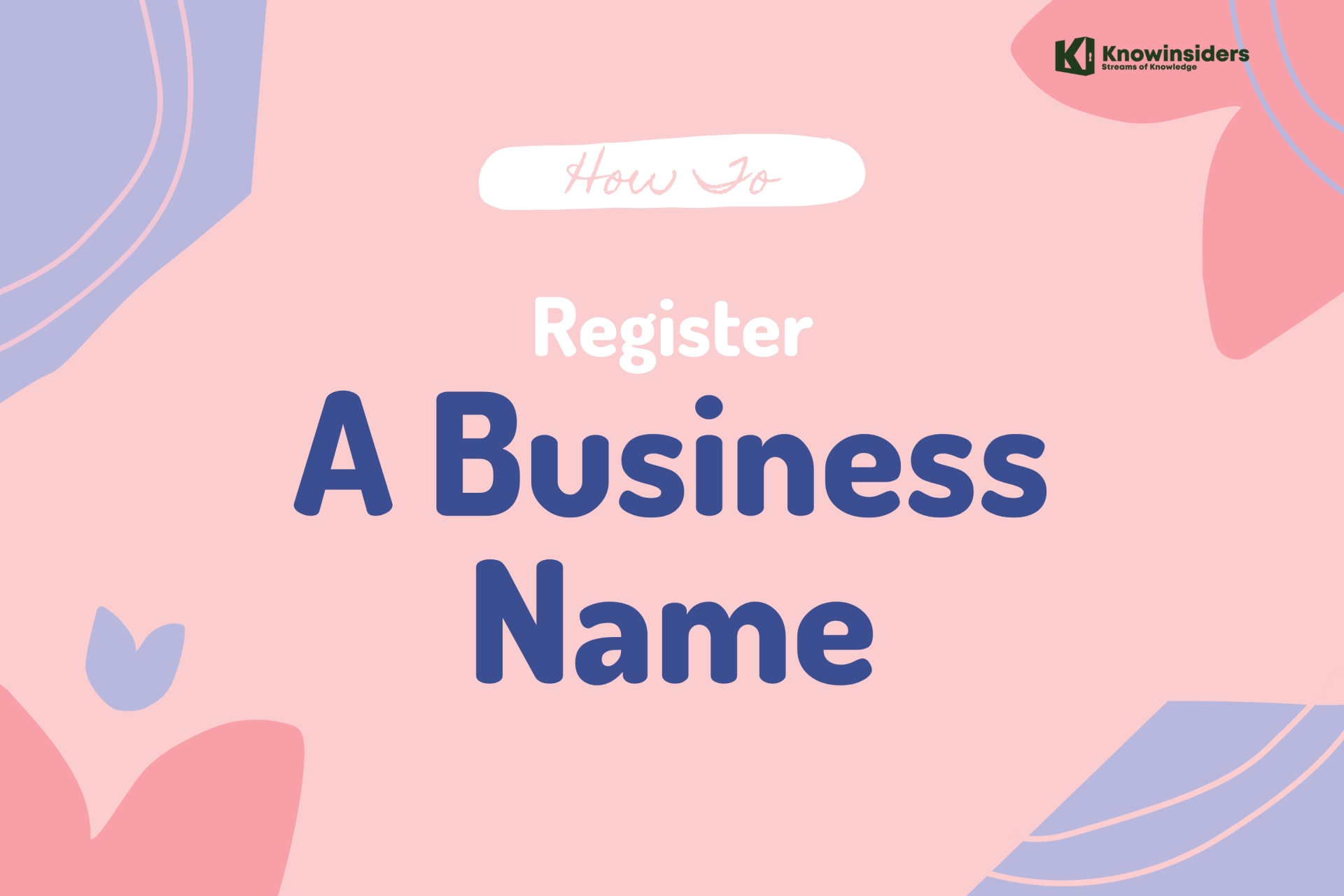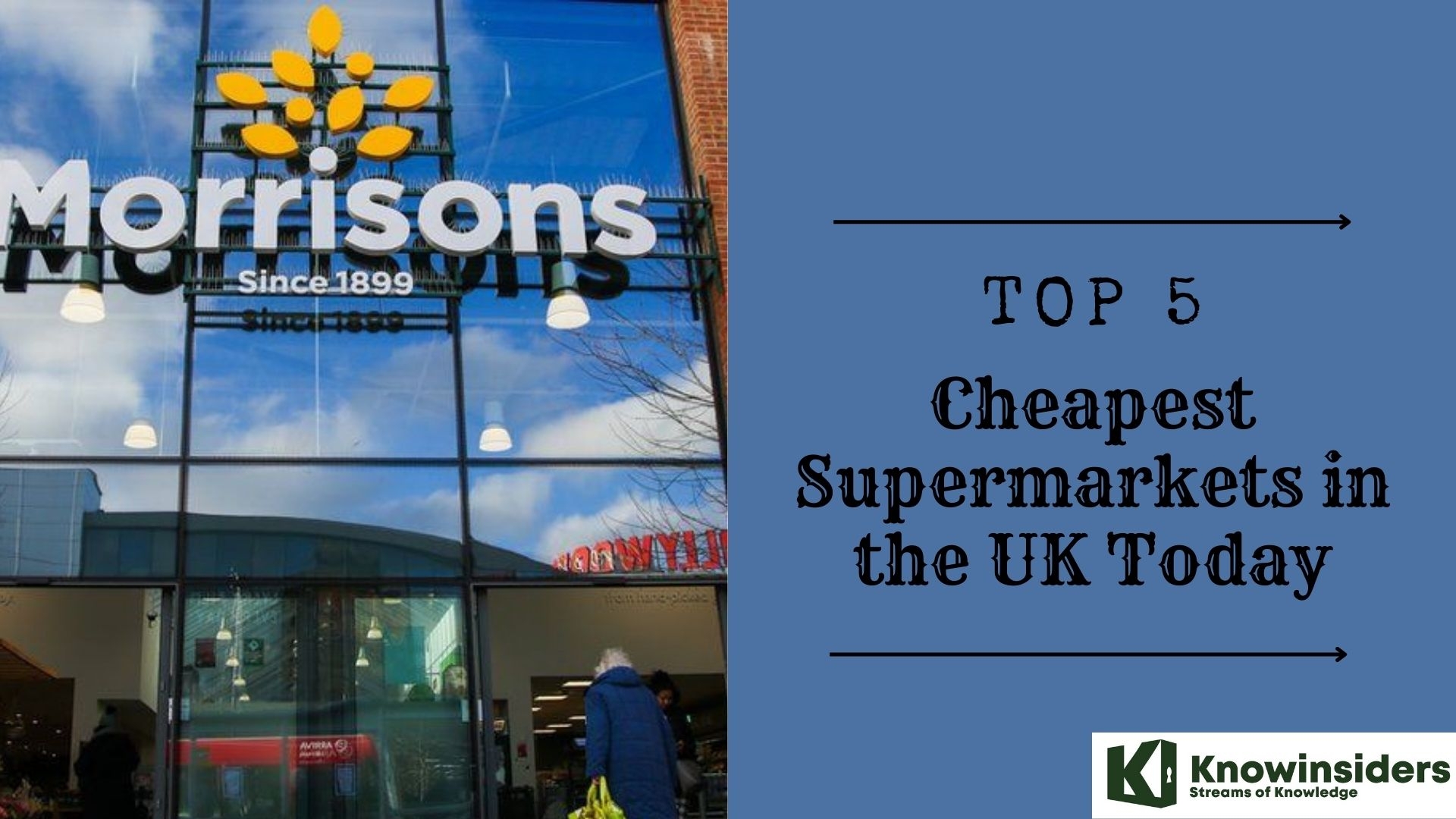How To Get the Best Small Business Loans In The UK Today
 |
| How To Get A Small Business Loan In The UK |
| Table of Content |
Small business loans are a type of commercial financing that help small businesses pay for their ongoing operating expenses. A lender or high street bank will frequently offer the loan, which is either unsecured or secured against an asset. It may be challenging to find a loan in the UK; in this article, we'll explain how to obtain the one that's available for small businesses.
Small business loans give new and small companies the financial boost they might require to be successful. They can be used for a variety of things, ranging from managing cash flow to business expansion, and they make it possible for businesses to expand while maintaining low costs.
A repayment schedule is outlined in the terms of the loan agreement when business owners borrow money from a lender. The money is then repaid with interest over a predetermined repayment period in regular monthly payments.
What is an unsecured business loan?
A loan that doesn't require security is referred to as an unsecured business loan. If things don't work out, the lender can sell the assets to recoup the cost of the loan because a secured loan uses the assets as security. The difference between secured and unsecured loans really comes down to the lender's risk.
You need security before you can even think about applying for a secured loan. However, if you have no assets, you'll need to apply for an unsecured business loan, which is a loan without any kind of security.
More and more businesses today are built on intangible assets; for instance, a software or consulting firm is likely to have a rented office, a few computers, and few other tangible assets. Unsecured business loans can help with that.
Many lenders in the alternative finance industry are willing to make unsecured loans of more than £100,000, and in some cases even up to £250,000. The lack of a security makes trading history more significant, and the lender may also request a personal guarantee.
What is a secured business loan?
Secured business loans give small businesses access to capital on the condition that they provide "security" in the event that they are unable to pay back the loan. This security covers corporate possessions like real estate and machinery. If the repayment is unsuccessful, the lender will seize these assets.
Small businesses with access to valuable assets that they can use as collateral benefit most from these loans. Lenders will take into account the proposed asset when considering a secured loan application, and they might even request an asset valuation.
You will grant the lender 'charge' over the asset once the asset, loan amount, and repayment schedule have all been agreed upon. In the event that your company defaults and is unable to repay the loan, this essentially means that the lender will hold the legal authority over the chosen item.
You should be aware that the amount you want to borrow must match the value of the security you are providing.
Top Tip: With secured loans, lenders prefer that you fully own your chosen asset. There are two types of assets you can offer to secured loan lenders, but most lenders are more likely to approve hard assets:
| Hard Assets | Soft Assets |
|---|---|
| Commercial Vehicles | Office Equipment |
| Heavy Machinery | IT Equipment |
| Commercial Property | Stock |
 How To Get A Small Business Loan: Best Tips for Startup Success How To Get A Small Business Loan: Best Tips for Startup Success Money is important if you want to start your business, which small business loan will help with that. To better understand what it is and ... |
What are the pros and cons of small business finance?
Although business loans are a common source of funding, businesses have a wide range of options even within this category. You can obtain both long-term loans and short-term loans from online-only lenders in addition to traditional high-street banks, with term lengths ranging from one to 25 years.
There are numerous business uses for loans. For instance, you can apply for funding for startup costs, facility upgrades, new equipment purchases, workforce expansions, stock purchases, and other operational activities.
Lenders, including banks, have created specialized products like asset financing, invoice financing, and working capital loans in addition to their standard business loans to meet this variety of needs and assist businesses in obtaining the best available financing.
1. Advantages
Allow you to grow your business
Without having to wait until your company has made enough profit to fund expansion yourself, bank loans are a convenient way to get additional funding. By taking out a loan, you can start executing your plans much earlier and seize any business opportunities that arise, allowing for faster and more accelerated growth.
Even though applying for and receiving approval for a bank loan can take weeks or even months, it is still a useful way to raise money to expand your business.
You keep full control of your company
As with any small business loan, the main benefit of a bank loan is the ability to boost cash flow without sacrificing any control over your business. In order to obtain immediate funding with some other funding options, such as equity finance, you must sell company stock to investors. As a result, you must divide the profits while the investor(s) are still on board. When you repay a small business loan, you are released from your obligation to the lender because it is a more transient solution.
Reputation
The familiar name and solid reputation of a bank distinguish it from other lending options. A bank may be preferred by some small businesses because of its established reputation and the security they believe this to bring. In comparison to the newer, online-only lenders, the established high-street banks might seem to be a more trustworthy option, but this perception may be waning as online lenders gain in acceptance and popularity as a source of funding.
No interference from the bank
One of the additional benefits of a small business bank loan is that banks shouldn't interfere or place limitations on how you use the loan as long as you make the repayments.
Naturally, you must submit a business plan when you initially apply for a bank loan outlining how you intend to use the money so the bank can evaluate the risk associated with lending to your company. However, once you have the money, you have the freedom to alter your plans without the bank's help as long as you continue making loan payments.
2. Disadvantages
Strict eligibility criteria
A bank loan has a number of significant drawbacks, one of which is that banks may be reluctant to lend to small businesses. Since they lack the financial or trading history to support their loan application, start-ups and newer businesses may find it particularly challenging to be approved for a loan. If they are, the interest rates will likely be higher to make up for the increased risk.
Therefore, the advantages that a traditional bank loan can provide are most likely to be beneficial to more established businesses with a good credit history and promising growth prospects.
Lengthy application process
Preparing for a business loan application can also be a long and time-consuming process. Not only will you need to fill out an application form for each lender, but you will also need to provide a business plan, your account history, and your financial forecasts to show your business is a viable lending prospect. For more information on the application process, visit our Ultimate Business Loan Guide.
Traditional banks can take a long time to process this information and make a decision, especially if your business is applying for a large sum of money. Because of this, businesses wanting a quick injection of cash may struggle to get this from a high-street bank lender.
You may not receive the full loan amount
If your business loan is eventually approved by the bank, then there is a chance that you won’t receive the full amount that you applied for. A bank may decide your business doesn’t need that much money to carry out your project, or might deem it too risky to lend you the full sum. Because of this, businesses may want to prepare an alternative plan should they only receive a proportion of the requested funds.
Not suitable for ongoing expenses
Another drawback of a bank loan is that, more often than not, you cannot use the money for ongoing expenses; rather, you can only use it for specific projects or purposes that will help you expand your business. Banks will search for companies that will use their loans to invest, expand, and generate returns because they want to lend to companies that can repay them.
Other financing options, like overdrafts, credit cards, or working capital loans, may be more appropriate if a small business needs money to cover a temporary cash-flow issue or needs a short-term injection of cash.
 How To Get A Business Loan With Bad Credit How To Get A Business Loan With Bad Credit As a business owner or entrepreneur, there’s a good chance you’ll be looking for funding at some point in the life of your business. Read ... |
Best small business loans in the UK
1. HSBC
A British multinational holding company for investment banks and financial services, HSBC Holdings plc. With assets of US$2.984 trillion and total equity of US$204.995 billion as of December 2020, it is the second-largest bank in Europe after BNP Paribas. The Hongkong and Shanghai Banking Corporation established HSBC in its current form in London to serve as a new group holding company in 1991; the name is derived from the initials of that organization. HSBC can trace its roots back to an hong in British Hong Kong. Shanghai branches of the Hongkong and Shanghai Banking Corporation were first established in 1865, and the company was first formally incorporated in 1866.
Around 40 million customers are served by HSBC's 64 offices spread across Africa, Asia, Oceania, Europe, North America, and South America. According to total assets and market capitalization, it was the sixth-largest bank in the world as of 2020. According to a composite ranking by Forbes magazine, HSBC was the 40th-largest public company in the world.
Loan amount: £1,000-£25,000
Repayment period: 12 months–10 years
Eligibility:
Along with management accounts and historic accounts, you will also require a cash flow forecast and business plan.
To apply for a small business loan, you don't need an HSBC current account. You can take a three- or six-month repayment holiday at the beginning of the loan, but there are no fees for doing so.
2. Barclays
A multinational universal bank with its main office in London, England is called Barclays plc. With the assistance of a service provider, Barclays Execution Services, Barclays operates as two divisions, Barclays UK and Barclays International.
The City of London's goldsmith banking industry, which was founded in 1690, is where Barclays gets its name. In 1736, James Barclay joined as a partner in the company. As a joint-stock bank known as Barclays and Co., a number of banks from London and the English provinces, including Goslings Bank, Backhouse's Bank, and Gurney's Bank, merged in 1896. Barclays grew over the ensuing decades to become an international bank. Barclays installed the first cash dispenser in history in 1967. Numerous businesses have been acquired by Barclays, including the Woolwich in 2000, the London, Provincial and South Western Bank in 1918, the British Linen Bank in 1919, the Mercantile Credit in 1975, and the North American operations of Lehman Brothers in 2008.
Loan amount: Up to £100,000
Repayment period: 1-10 years
Eligibility:
You must be a sole proprietor, a couple, a limited company, a nonprofit organization, a group or a club.
With Barclays, you have the option of taking a six-month repayment holiday at the start of your loan and borrowing up to £100,000 over the course of 1–10 years.
You can extend your repayment period to 20 years and switch to interest-only repayment with secured loans of up to £25,000. If you're not satisfied with that, you can choose its asset finance product.
3. RBS/NatWest
The majority-state-owned British banking and insurance holding company NatWest Group plc is headquartered in Edinburgh, Scotland. The group manages a wide range of banking brands that provide private banking, corporate finance, personal and business banking, and insurance. The National Westminster Bank, Royal Bank of Scotland, Ulster Bank, NatWest Markets, and Coutts are its principal affiliates in the United Kingdom. In Scotland and Northern Ireland, the organization prints money; as of 2014, the Royal Bank of Scotland was the only bank in the UK that continued to print one pound notes.
Loan amount: £1,000 to £50,000
Repayment period: 1-10 years
Eligibility:
geared toward commercial clients or companies with a revenue of more than £2 million and a good credit rating without a history of CCJs or bankruptcy.
To apply for one of their loans, you don't have to be a customer of RBS or NatWest. To facilitate your loan, you might, however, be required to open a fee-free loan servicing account. There won't be any transaction fees.
There are no arrangement or early repayment penalties. Businesses impacted by COVID-19 are eligible for repayment holidays. For more information, visit the websites.
Each director or partner who is applying for funding must also provide a three-year address history if they are operating as a partnership, LLP, or limited company.
You'll also need each partner's, director's, member's, or signatory's personal information, including their addresses of residence for the previous three years. In addition, you'll require information about your company, such as your limited company's registration number (provided by Companies House). Additionally, information about any nations in which you or your company is registered for tax purposes, as well as year-end financial information or cash flow projections for your company.
4. Lloyds
A British retail and business bank, Lloyds Bank plc has locations all over England and Wales. Historically, it has been regarded as one of the "Big Four" clearing banks. The largest retail bank in the UK, Lloyds Bank has a wide network of locations and ATMs in England and Wales (as well as a deal to service its customers at Halifax locations in Northern Ireland and Bank of Scotland locations in Scotland), as well as 24-hour telephone and online banking services. It had 16 million individual and small business customers as of 2012. accounts.
Loan amount: £1,000-£500,000
Repayment period: 1-25 years
Eligibility:
You must be applying for a loan of at least £1,000 and have a business need for it. Additionally, you must have the legal right to borrow money on behalf of your company as a sole proprietor, partner, or director.
Both arrangement fees and penalties for early repayment are absent. Also possible are capital repayment breaks of up to two years.
5. Clydesdale/Yorkshire Bank
Clydesdale Bank is a trading name used by Clydesdale Bank plc for its retail banking operations in Scotland.
Loan amount: £25,001-£10,000,000
Repayment period: Up to 15 years
Eligibility: Much like RBS and NatWest, the Clydesdale and Yorkshire Bank offerings are identical.
You must be 18+ and have a UK-based business. An arrangement fee may apply.
6. TSB
Although TSB Bank has a network of 536 locations throughout England, Scotland, and Wales, it hasn't operated there since 1991. TSB debuted on September 9, 2013, in its current incarnation. With more than 5.2 million customers and more than £20 billion in loans and deposits, it has its headquarters in Edinburgh. The bank was established from the operations of Lloyds TSB Scotland plc, into which all branches of Cheltenham & Gloucester and a number of Lloyds TSB branches in England and Wales were transferred, and it was given the name TSB Bank plc.
Loan amount: £1,000-£1,000,000
Repayment period: 1-10 years
Eligibility:
A sole proprietor, partner, or director must need the loan for business purposes.
Depending on your company's needs, you can choose between a fixed rate loan and a base rate loan. You can borrow up to £1,000,000 at a fixed rate for a period of one to ten years. Depending on how much you borrow, you can choose between secured and unsecured loans. The arrangement fee ranges up to 1.5 percent.
Loans with fixed rates can be obtained either with collateral or without. Holidays from capital repayment may also be available.
As the name implies, base rate is dependent on the Bank of England base rate, which is a little more unstable. It allows for loans starting at £25,001 and repayment terms of one to 25 years. Be mindful that security may be necessary.
How to apply for a small business loan
You can submit an online application for a small business loan with an alternative lender or visit a bank to do so. You must specify how much you wish to borrow as well as the length of time you have to make payments. Both personal and pertinent business information must be provided.
If you’re looking to apply for a small business loan with SME Loans, follow the steps below.
• Step 1: Once you have decided how much you want to borrow, click apply and fill out our application form, which will ask for your personal details and business credentials.
• Step 2: Shortly after submitting your application, one of our dedicated account managers will be in touch as they match you to the most appropriate loan provider for your business.
• Step 3: After a match has been made, the lender will give you the terms of agreement for your small business loan.
• Step 4: After you have agreed to the lender’s terms and conditions, the loan amount will be deposited into your account, and you will be able to access it within 24 hours.
How can I make the most of my small business loan?Keeping on top of administrative tasks is essential for your small business's financial health. You can avoid making common business spending mistakes and ensure that the money you have borrowed is used wisely and effectively by adhering to a strict and detailed budget. If at all possible, it's a good idea to keep the loan in a different account from your regular business account and transfer the funds as needed. This will keep you from making rash purchases and improve your ability to make future investments that will be more significant and larger. Spend the money gradually. It's crucial to follow your business strategy and loan plans when faced with an unexpected infusion of cash in order to avoid being overwhelmed and to spend the funds sensibly. Keep a positive relationship with your lender. Make sure all of your payments are being made on time, and inform your lender of any problems or unforeseen circumstances that may affect your ability to make payments. |
 How To Get A Business Loan With Bad Credit How To Get A Business Loan With Bad Credit As a business owner or entrepreneur, there’s a good chance you’ll be looking for funding at some point in the life of your business. Read ... |
 How To Get A Small Business Loan: Best Tips for Startup Success How To Get A Small Business Loan: Best Tips for Startup Success Money is important if you want to start your business, which small business loan will help with that. To better understand what it is and ... |
 How To Register and Choose A Business Name? How To Register and Choose A Business Name? After choosing a business name for your new company, you will want to register it to prevent others from using it. There are several ways ... |
 Where and How to Get Amazon Gift Cards? Where and How to Get Amazon Gift Cards? If you're turning to Amazon gift vouchers, then we explain everything you need to know. Read on to know where and how to buy Amazon ... |


























